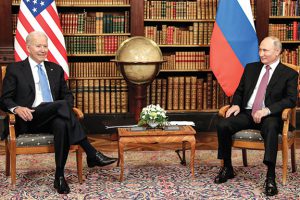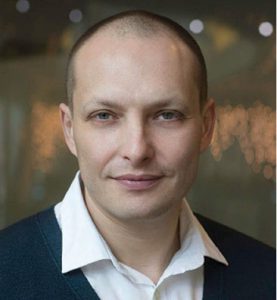The riots in Kazakhstan that brought down its government on January 5 are just the latest sign of tension under the muddy ice crust into which the core post-Soviet authoritarian regimes have congealed — the same crust that broke in Ukraine in 2014, cracked but held in Belarus in 2020 and grew so thick in Russia last year that it started to look like permafrost.
That’s a deceptive look: The predatory, repressive regimes in these countries are not permanent — not just because they frustrate the ambitions of their smartest subjects, but also because they depend heavily on formerly charismatic personalities that no longer inspire. “Grandfather, Go†is a popular slogan among Kazakhstan protesters; they mean 81-year-old ex-president Nursultan Nazarbayev, who left the formal job to a successor in 2019 but has held on to the levers of power. Alexander Lukashenko in Belarus and Vladimir Putin in Russia are “grandfathers,†too. They have held on thanks to a combination of repression and inertia, but their resource is finite.
It’s probably pointless to tell Western leaders to take a longer view as they ponder Putin’s most recent security demands, which have led to multi-track talks aimed primarily at stalling a possible Russian re-invasion of Ukraine. They are primarily interested in keeping Putin from starting, and winning, any more wars in the coming months. The violent breaking of ice across the ex-Soviet core — a debacle in the original meaning of the word — looks distant, and perhaps they don’t think they’ll be around for it.
And yet, even if immediate concerns have been driving Western reactions to Putin’s open blackmail, an ice-free future is worth keeping in mind, if only to avoid the kind of strategic mistakes made 30 years ago, when the Soviet Union cracked and its bits drifted apart like floes.
Inclusion in Western institutions has been largely symbolic, no matter what post-Soviet countries did. Membership in what was briefly the Group of Eight, the peak of its success as a friend of the West, brought Russia no benefits worth mentioning — unlike, arguably, participation in the Group of 20, which is not Western-dominated.
The treatment post-Soviet nations received at the hands of the West in the last 30 years has been dictated by a deep distrust — of Russia’s military might, which needed to be contained with Nato expansion, of the entire post-Soviet space as a source of unwanted migrants, of post-Soviet businesses as potential corruption exporters and state-subsidy abusers. As a result, of the 15 ex-Soviet nations, only the Baltic states, included in the USSR by force and never quite culturally integrated in it, are firmly in the Western fold. Russia — and in Central Asia, China as well — have kept the others in a twilight zone. Even the freest of them, Ukraine, is in flux, a transitional state that could end up in any geopolitical camp or basket. As such, they are a constant source of instability: Huge, strategically located, resource-rich chunks of territory from which all kinds of threats — economic, military, terrorist — can emanate. Putin, who runs the biggest of them all and has the military power to move borders, is trying to turn this threat potential into a bargaining chip. So far, he’s been successful in getting Western, in particular US, leaders to pay attention.
Both domestically and internationally, Putin has long given up on cooperation — he feels, not unreasonably, that Russia as a global power has not benefited from being cooperative. Instead, he’s bet on coercion. That makes any negotiated solutions between the US and Russia or, broader, the West and Russia, unlikely while he’s still around.
Putin’s proposals for institutionalising a new balance of forces are so clearly aspirational that reading them even as a starting point for serious negotiations is hard; he can’t really believe Nato will pull back into its pre-1997 shape in the 2020s. So the West has an opportunity to respond in kind, talking, in a way, over Putin’s head with future Russian and post-Soviet leaders to lay out some aspirations of its own.
Instead of mere Nato non-expansion, Russia and its neighbours could be offered integration and inclusion, free travel, open markets — in exchange for alignment with some clear rules, such as inviolable borders, and values, such as the right to elect leaders. Demands to be left alone could be countered with proposals of a full alliance.
Ice is fundamentally fragile, no matter how thick it may look today. The West must be prepared, on a strategic level, to deal differently with its unfinished post-Soviet business than it did in the last three decades. It shouldn’t assume an absence of goodwill on the Russian or, more generally, the post-Soviet side — post-Putin, much sooner than in another 30 years, it won’t be a given.
—Bloomberg
Leonid Bershidsky is a member of the Bloomberg News Automation team based in Berlin. He was previously Bloomberg Opinion’s Europe columnist
 The Gulf Time Newspaper One of the finest business newspapers in the UAE brought to you by our professional writers and editors.
The Gulf Time Newspaper One of the finest business newspapers in the UAE brought to you by our professional writers and editors.

